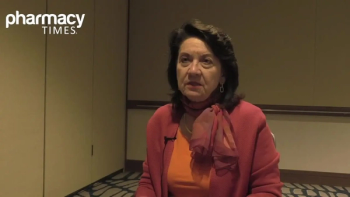
Shara Bialo, MD, emphasizes the critical role of autoantibody screening in early T1D detection, enhancing patient outcomes during American Diabetes Month.

Shara Bialo, MD, emphasizes the critical role of autoantibody screening in early T1D detection, enhancing patient outcomes during American Diabetes Month.

The FDA has approved doxecitine-doxribtimine powder for the treatment of patients with thymidine kinase 2 deficiency developing symptoms at or before the age of 12.

RSV infections in multiple myeloma patients delay treatment but do not increase mortality, highlighting the need for further research on infection management.

In children and adolescents, reinfection with COVID-19 increased the risk of worsened long COVID outcomes.

These findings are from the WAYFINDER clinical trial and were presented at the CHEST 2025 Annual Meeting.

Teva Pharmaceuticals recalls over 580,000 bottles of prazosin due to contamination concerns, urging patients to consult healthcare providers.

A groundbreaking vaccine shows 73% efficacy against Salmonella Paratyphi A, offering hope in combating enteric fever globally.

Richard Kovacs, MD, underscores the pharmacist’s role in educating patients about sodium reduction, monitoring blood pressure, and ensuring safe transitions to low-sodium oxybate therapy.


Explore the risks of synthetic 7-hydroxymitragynine (7-OH) products and why natural leaf kratom is a safe alternative.

Berberine is increasingly used for weight management despite limited supporting evidence, emphasizing the need for pharmacist-led education, interaction monitoring, and adverse effect counseling.

Although the incidence of vascular assess-associated infections (VAIs) was low, the incidence caused by noncuffed catheters (NCC) was high.

A retrospective chart review demonstrates the safety of using monoclonal antibodies that are produced with Chinese hamster ovary cells in patients with an allergy to alpha gal.

Continuous glucose monitoring (CGM) significantly enhances the detection of cystic fibrosis–related diabetes, outperforming traditional methods.

Researchers explore HER3-targeted therapy with patritumab deruxtecan to enhance outcomes in early-stage triple-negative breast cancer, reducing chemotherapy side effects.

Two experts discuss sessions that covered perimenopause, premature ovarian insufficiency, GLP-1–based treatments, and the health needs of Indigenous and Hispanic women.

Research reveals a notable risk of invasive fungal infections in multiple myeloma patients undergoing BCMA-targeted CAR T-cell therapy, highlighting the need for vigilant monitoring.

Influenza significantly impacts agricultural workers in the Americas, highlighting urgent vaccination needs for public health and food security.

Steps must be made to preserve pharmacy access for those who need it most.

The FDA designates Stoboclo and Osenvelt as interchangeable biosimilars for denosumab, enhancing treatment options for osteoporosis and cancer-related conditions.

Low RSV vaccination rates among older adults in the US highlight missed opportunities for reducing hospitalizations and health care costs.

Explore the impact of GLP-1 medication on weight loss in menopausal women, highlighting the need for personalized treatment approaches.

Long-term benzodiazepine use has been linked to lasting cognitive impairments, underscoring the vital role pharmacists play in supporting safe deprescribing strategies.

Pharmacists play a crucial role in supporting women through menopause, offering education on treatments, side effects, and long-term health management.

The 20-valent pneumococcal conjugate vaccine (PCV20) demonstrated higher vaccine effectiveness against invasive pneumococcal disease or all-cause pneumonia in cohorts of older adults.

New strategies target dormant tumor cells in breast cancer, offering hope for preventing recurrence and transforming patient management.

FDA designates Conexxence and Bomyntra as interchangeable denosumab biosimilars, enhancing access and affordability for patients needing critical therapies.

Pharmacists play a vital role in vaccine education and administration.

Rajinder Shiwach, MD, MRCPsych, outlines how pharmacists can strengthen retention, patient education, and access to rapid induction strategies for opioid use disorder treatment.

FDA accelerated approval speeds access but faces challenges with trial completion, costs, and end point validation.